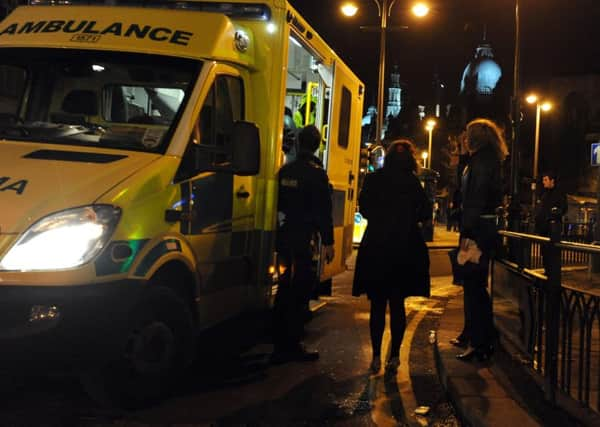Andrew Vine: The 10-year hangover of 24-hour drinking culture


No, I thought not.
The street scenes are, if anything, more unpleasant than they ever were with crowds of young people hopelessly drunk, some sprawled in the gutter, often enough nursing an injury that will send them to hospital.
It is 10 years ago today that the licensing laws were relaxed to allow 24-hour drinking, despite the misgivings of the emergency services which were always going to have to sweep up the consequences.
Advertisement
Hide AdAdvertisement
Hide AdThe change by the Labour government came with the naïve, even absurd, hope that it would usher in a new era in Britain’s relationship with alcohol.
Out would go beer swilling until revellers could hardly stand long enough to bawl threats to knock somebody’s head off, and in would come the sipping of a cheeky little vintage accompanied by sparkling conversation and the tinkling of polite laughter.
Some hope.
That such a view could ever be advanced spoke volumes about the fashionable New Labour salons of North London where it was conceived and the reality of fighting and falling down never intruded.
Instead, extended opening hours have aggravated Britain’s problem of binge drinking and put even more pressure on the emergency services. There was an upsurge in drink-fuelled trouble in the months after the change, and a decade on, it shows few signs of abating.
Advertisement
Hide AdAdvertisement
Hide AdLast month, the Institute of Alcohol Studies published a worrying survey of 5,000 emergency services personnel, which found that 24-hour licensing had placed them under “huge strain”.
The survey also found that 80 per cent of police and 65 per cent of ambulance staff suffered a “culture of fear” because they felt so at risk of drunken assaults.
That is a dismal legacy for a well-intentioned change that sought to make town and city centres more pleasant places to be, and licensed premises more family-friendly.
The truth of the matter is that any police officer, paramedic or accident-and-emergency doctor or nurse could have predicted that more access to alcohol would lead to excessive drinking.
Advertisement
Hide AdAdvertisement
Hide AdThe argument went that by effectively abolishing closing time, the practice of drinking as much as possible before the bell was rung for last orders would cease, as would the exodus of drunken crowds onto the streets all at once.
That was never going to be the case, not least because it completely overlooked so many people’s determination to keep on drinking until virtually insensible.
It is one of the less appealing aspects of the British national character that the country’s relationship with alcohol has long been a troubled one.
Amid last year’s commemorations of the 100th anniversary of the Great War beginning, it was largely overlooked that 1914 saw the introduction of restrictions on pub opening hours because Britain was drinking so much the government feared the effect on the war effort.
Advertisement
Hide AdAdvertisement
Hide AdOur European neighbours might embody the café culture, with sensible amounts of drink taken and children introduced early to alcohol by their families in order that they develop a mature attitude to it, but we don’t.
Too many Britons binge. They span social class and education. To anybody who contends that the worst culprits are of the lowest educational attainment, just witness the mayhem of student nights organised with the express intention of idiotic amounts of drinking.
There is no realistic prospect of 24-hour drinking being repealed. Political will is lacking because it would be such an unpopular measure.
But the Government and the drinks industry should resolve to mark this 10th anniversary by making something good come from it – the intention to embark on a long campaign to discourage binge drinking.
Advertisement
Hide AdAdvertisement
Hide AdEducation should be more prominent, so that when a generation not yet old enough to cross the threshold of a bar or nightclub does so, it goes in with the view that a good time can be had without staggering on the way back out.
And the drinks industry should be more responsible. The past 10 years have seen the very aggressive marketing of drinks aimed at the young.
Teenagers have been seamlessly weaned off brightly-coloured soft drinks onto lurid alcoholic ones containing formidable measures of spirits.
The bars and clubs have their part to play. They have an absolute discretion to stop serving customers who are drunk, yet it is not deployed nearly enough, usually because of the fear of a violent reaction and the hope that the nuisance will move on and become somebody else’s problem.
More often than not, the drunk becomes the problem of the police or the NHS, carted off to the cells or hospital, and both are a very long way from being part of a vibrant café culture.